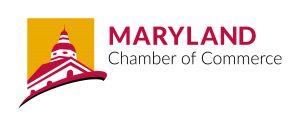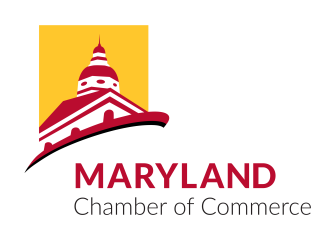
ACTION REQUESTED:
HB 1628: Sales Tax on Services poses a grave threat to the business community. We need your help in conveying this urgent message to the General Assembly, so please join us for a “drive-in” and press conference this coming Monday, March 2.
Please spread the word and we urge you to join us on Monday!
WHAT: Drive-In and Joint Press Conference to declare opposition to HB 1628
WHO: A Coalition of 20+ Business Organizations, including the Maryland Chamber of Commerce, National Federation of Independent Business (NFIB), Maryland Retailers Association, Maryland Motor Truck Association and more
WHEN: Monday, March 2, 2020
– LITERATURE DROP-OFF: 9 a.m. to 10:30 a.m.*
– PRESS CONFERENCE: 11 a.m. – 12:30 p.m.
WHERE: House of Delegates Office Building, Meeting Room 180: Baltimore County Delegation Room, 6 Bladen Street, Annapolis, MD 21401
*At 9 a.m., we will be heading to legislators’ offices to deliver a one-pager on how HB 1628 will harm the business community. Please meet in Room 180 no later than 8:45 a.m. if you would like to join us for the literature drop-off.
*On Monday we anticipate heavy traffic in the area due to the 1 p.m. committee hearing on HB 1628. Please remember that parking can be limited, but is available on the street and in multiple local garages.
2020 LEGISLATIVE SESSION
We’re halfway through the 2020 Maryland legislative session and there are a few important dates left that you should be aware of:
March 10th – Committee reporting courtesy date (each committee must report their bills out by this date)
March 16th – Crossover Date (Each chamber must send the bills they intend to pass favorably over to the other chamber)
March 30th – Budget bill must be passed by both chambers
April 6th – Sine Die (adjournment)
| ______________________________________________________________ | ||
|
The Chamber team has been hard at work testifying on legislation impacting the broader business community. A considerable amount of anti-business legislation has been introduced this session, particularly in the business incentive and tax space. Some of the tax bills we’re watching closely include: HB 507: Income Tax — Pass-Through Entity — Additional Tax, this bill imposes an additional 4% tax on income distributed to a member of a pass-through entity (PTE) from the PTE’s taxable income that exceeds $1 million. (Delegate Palakovich Carr) HB 565: Income Tax — Business and Economic Development Tax Credits – Termination, this bill terminates the following tax credit programs: (1) enterprise zone; (2) Regional Institution Strategic Enterprise Zone (RISE); (3) One Maryland; (4) Opportunity Zone Enhancement Program; (5) biotechnology investment incentive; (6) film production activity; (7) cybersecurity technology or service tax credit; and (8) small business tax relief. (Delegate Kaiser) HB 1354: Sales-and-Use Tax – Services, this bill adds 13 new service-based businesses to the definition of a taxable service. (Delegate Charkoudian) SB 2 (HB 695): Digital Advertising Gross Revenues – Taxation, this bill will increase the cost of online advertising for all businesses in Maryland. (Senator Miller) As we work through the back half of the legislative session, the Maryland Chamber is eager to hear your feedback on legislation like what is listed above. Your opinions and viewpoints inform our advocacy work here in Annapolis. Highlighted below are our small business priorities and a call-to-action for a new paid family and medical leave insurance (FAMLI) program that is drawing some attention. If you would like to become more involved in the Maryland Chamber’s policy and advocacy process, please reach out to a member of our government relations team. ______________________________________________________________ Small Business PrioritiesAdjustment for pass-through entities (SB 523/HB 129): This legislation would restore a federal income tax deduction to pass-through entities (PTEs) when they file their federal income tax return. The bill would confirm that the state and local tax (SALT) currently remitted to Maryland by pass-through entities is a tax on the entity, thereby allowing the owners to take the position that the tax is a business entity tax not subject to the $10,000 SALT limitation enacted in the Tax Cuts and Jobs Act of 2017 (TCJA). Further, the bill clarifies, if so elected, that at the entity level, the tax under 10.102.1 is a tax on and a tax paid by the PTE itself (and not “paid on behalf of” the owners), thus making the state income tax paid by the entity deductible against business income for federal taxable income purposes. The bill is revenue neutral for Maryland’s treasury and six states have passed similar legislation in response to the SALT cap imposed by TCJA. This relatively minor code change would provide federal tax relief for tens of thousands of Maryland’s small business owners, while remaining revenue neutral to the state. Support for Small Business Development Centers (HB 492/SB 493): The Maryland Small Business Development Center (SBDC) is a partnership between the U.S. Small Business Administration, the state of Maryland and the University of Maryland, College Park. For the past 30 years, the SBDC has provided free consulting and low-cost training services to entrepreneurs throughout Maryland, helping to spur new business growth and the expansion of existing businesses. In 2019, the Maryland Small Business Development Center partnered with roughly 3,700 Maryland entrepreneurs, which helped to raise more than $95 million in commercial bank funding and led to 279 new Maryland companies opening in all corners of our state. Those efforts helped support nearly 15,000 Maryland jobs. HB 492/SB 493 seeks to add an additional yearly state appropriation of $550,000 to hire additional consultants and trainers in underserved communities and Baltimore City, and more bilingual staff to better serve our state’s fast-growing population of diverse entrepreneurs. Legislation in support of workforce development: The Chamber supports any effort to promote workforce development in our state. Through the Maryland Chamber Foundation, we are engaged in initiatives including business education on workforce best practices, talent pipeline support, workforce development needs and establishing partnerships between businesses and schools to support underserved communities in career-focused education, licensure, career and technical education (CTE), apprenticeships and more. We look forward to sharing what we’ve learned in each of these areas with the Joint Committee on Workforce Development, and to working together to remove barriers and increase access to quality workforce development and talent pipeline opportunities. We support the following bills: HB 220—Income Tax Credit—Employment of Apprentices SB 369—Workgroup to Study Maryland’s Emerging Digital Economy HB 851/SB 26—Partnership for Workforce Quality Program HB 79—Maryland Technology Internship Program—Alterations HB 548—Career and Technology Education—Training in Soft Business Skills HB 840/SB 302—Joint Committee on Workforce Development HB 1457/SB 751—Apprenticeship Start-Up Act of 2020 SB 868—Apprenticeship Maryland 2030 ______________________________________________________________ Family and Medical Leave Insurance (FAMLI) ProgramHearings have been scheduled in both the House and Senate next week on HB 839 and SB 539. This legislation that would establish a Family & Medical Leave Insurance (FAMLI) Program to be administered under the supervision of the Department of Labor’s Unemployment Insurance (UI) Division. The program generally provides up to 12 weeks of benefits to an employee who is taking partially paid or unpaid leave for certain reasons, except that an additional 12 weeks for benefits appears to be provided in certain circumstances. Leave with benefits is provided for the following reasons: 1) to care for a child during the first year after the child’s birth or after the placement of the child through foster care or adoption; 2) to care for a family member with a serious health condition, 3) because the employee has a health condition that results in their being unable to perform the functions of their job, 4) to care for a service member who is the employee’s next of kin, or 5) because the employee has an exigency arising out of the deployment of a service member who is a family member. There are any number of additional nuances and complexities outlined in the language, and the Chamber is very concerned that the implementation of this legislation will result in additional costs and administrative burden to employers, especially small businesses. More of the Chamber’s concerns include: the definitions of eligibility laid out in the bill language and the length of leave being granted, up to 24 weeks. It is anticipated that this new program would result in significantly higher absentee rates and lead to additional abuses. There are also concerns with implementation and administrative complexity. In advance of these hearings, we urge you to contact your legislators to share your concerns with the bill. If you wish to participate in either hearing in opposition, please contact Ashley Duckman (aduckman@mdchamber.org) For talking points and more in-depth information about our concerns click here. ______________________________________________________________ The 2020 Census in MarylandMaryland’s congressional delegation wants to hear from you! Every 10 years, the United States undertakes the census to count every person in the country. This data is used for a variety of purposes, like reapportioning congressional representation among the states or making funding decisions around critical federal programs like Medicare. What you may not know is that the census is extremely important for business data collection. Census data, which includes income levels, household size and homeownership, can help businesses in Maryland understand their potential customer base, select ideal business locations, implement consumer pricing strategies and make informed decisions overall. The members of Maryland’s congressional delegation would like to know if you have any examples of a business decision you have made after taking census data into account. The Maryland Chamber of Commerce is collecting those examples and aggregating them to provide to our members of Congress. If you have any examples you would like to share, please send them to Andrew Griffin, senior policy analyst, at agriffin@mdchamber.org. The Maryland Department of Planning and the U.S. Census Bureau are asking businesses to encourage their employees, customers and communities to fill out their census forms to ensure an accurate count of all people in Maryland for the 2020 census. An accurate count is crucial to Maryland obtaining the maximum amount of federal assistance for programs and resources in communities across the state. Census Day 2020 is coming up on April 1. |


